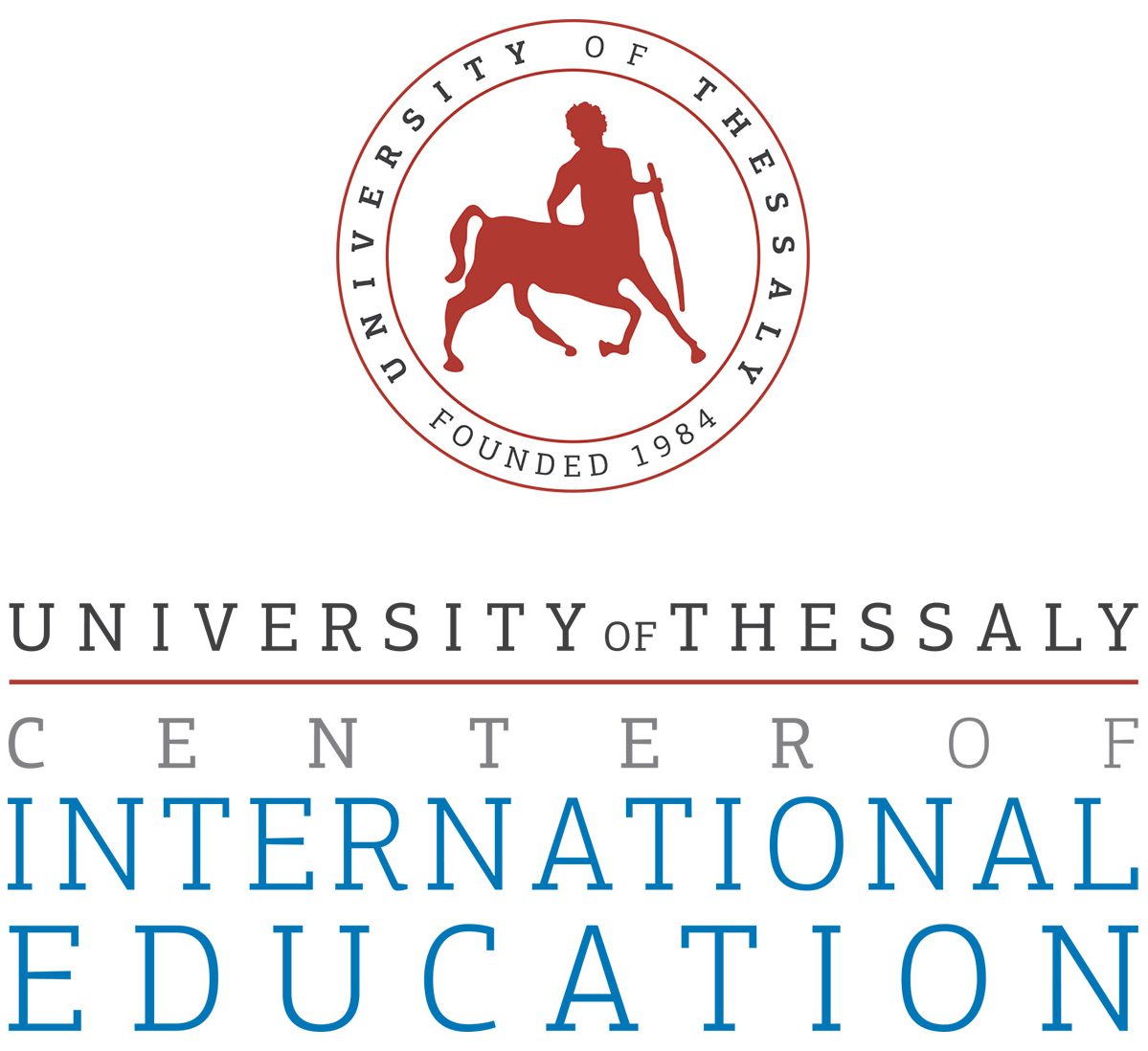
COOPERATE aims at achieving, as overall objective, the improvement of the health-care system from a VET point of view and within a European framework. This objective gathers the learning outcomes that, in each country, define the health-care sector, as described by the national Qualification Frameworks.
The partnership comes from Germany, Italy, Poland, Spain and Greece.

CORE project aims at 1 Enabling child to change in the future by not relying on existing knowledge but by having the mindset for resourceful alternatives that guarantee the quality of life and business 2 Engaging students, educators, and the wider community on the changes needed for a successful transition to becoming climate neutral by 2050. 3 Cultivating competencies & future-oriented modules in line with the New European Bauhaus initiative for the incorporation of Green Deal into everyday experiences

The STEM Gap is not easy to tackle and requires sustainable strategies for long-term impact. In WESTEM, the intention is to set the tone for such a path, through meaningful support and services. The following concrete objectives are envisaged:
– Enable opportunities to girls and women to gain the skills and confidence to succeed in STEM.
– Develop a self-assessment tool for assessing HEIs faculty readiness in promoting the participation of women in STEM fields of study
– Develop and apply suitable professional development and training to faculty to promote inclusive STEM education and support for women coming from marginalized backgrounds.
– Attract, recruit, and retain women

Mental Health Awareness & Education for Parents, Guardians, Educators, and School Administrators. SIGN aims to provide in-depth information and knowledge about the most common mental health conditions affecting teenagers in Europe. The SIGN project will develop an educational digital toolkit that will build on and assist the recent developments on Mental Health, and offer new perspectives and approaches. The toolkit will focus on existing pedagogical methods that address mental health matters, but that is not widely streamlined.
COOPERATION FOR INTEGRATION UNDER FINANCIAL INCLUSION OF CURRENT REFUGEES AND NEWCOMERS
The purpose of this project is to indicate the preferences and expectations of young-adult refugees and highlight general priority issues, clarify the main gaps between the legal frameworks and actual practices by sharing the best practices with a multi-country perspective. and hence overcome policy constraints and access barriers. Additionally, various dissemination activities will contribute to the practical goals of the research project and improve awareness in the different parts of the international community.
For integration under financial inclusion of current refugees and newcomers with a multi-country perspective, the concrete objectives of the project are listed below:
1. Clarifying the best practices of a multi-country perspective to eliminate the identified deficiencies in the financial harmonization and integration studies for the target group.
2. Conducting semi-structured interviews to determine refugees’ financial inclusion and financial literacy knowledge, skills, and competence levels in all partner countries.
3. Developing a roadmap for relevant institutions and organizations in order to increase financial inclusion, financial access, and financial literacy levels of the refugees
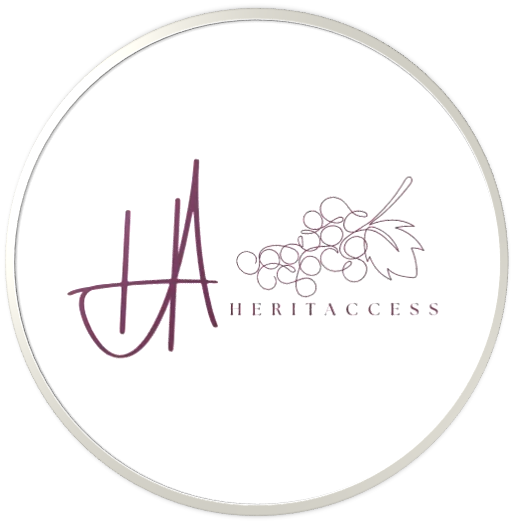
HeritAccess
HeritAccess: Access to culture and heritage in rural surroundings through the interactive digital experience” aims at democratizing the acknowledgment of traditional rural heritage with so much educative and historical value, not yet adapted for an elder and disabled visitor. Together with the latter, the specific objectives of the project are to:
– Exploit the huge heritage that rural areas (with prevalence for the wine tourism sites) are representing in the regions of the partners involved;
– Build through 3D technology those selected sites that for historical value and traditions deserve to be transmitted to the audience with certain physical impairments (motor, visual, auditive).
– List a series of guidelines that will allow further rural heritage sites to adapt their visitors’ path to their physical impairments.
– Quickly respond to the chance of people with reduced mobility or low knowledge of the ultimate technology, so as to enhance their digital literacy and interest in these places.

By gathering as much information as possible and organizing it into e-modules that fit into an e-learning platform, WAKE UP aims to prepare youth for the metaverse’s risks and teach them how to exploit all the opportunities to ensure youth’s upskilling in different fields (ej, it can be a great occasion to promote active citizenship, young people’s sense of initiative and youth entrepreneurship including social entrepreneurship) and guarantee them a better future.
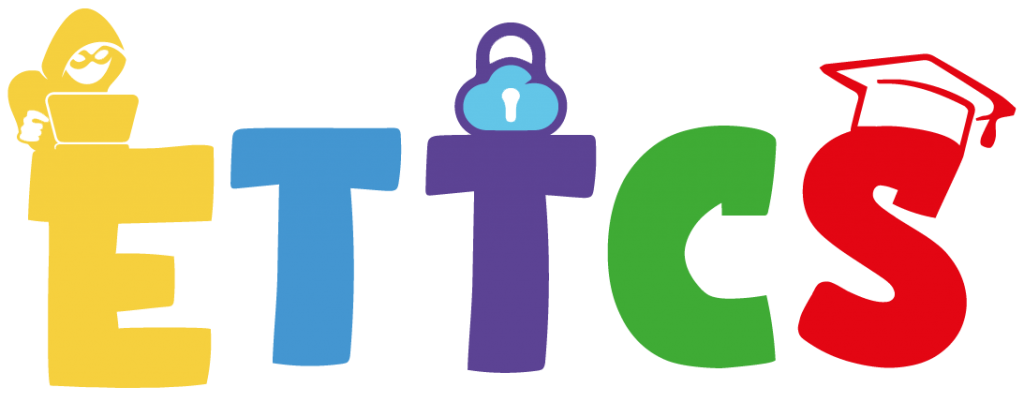
ETTCS: Empowering Teachers to Trigger Cybersecurity at School
The project aims at:
-Developing an open e-learning platform on cybersecurity, topics capable of feeding the community of enthusiasts of these aspects;
-Developing digital skills and cybersecurity competences
for teachers and their students;
-Developing the ability of teachers to ensure a safe online environment;
-Prepare teachers to train their students on cybersecurity;
-Developing cybersecurity content and skills in order to reduce the skill shortage
suffered by the EU;
-Bridging the gap between the education world and the labor market to reduce unemployment rates;
-Develop students’ skills related to cybersecurity, e.g. problem-solving, technical aptitude, attention to detail, communication, critical thinking, and more;
-Encouraging women’s participation in cybersecurity careers.

SUPPEC: Supporting Public Education Centres Educators for Refugee Adaptation. The unprecedented refugee crisis is increasingly spilling over to affect apart from the wider region, also Europe. Reality shows that refugee people face a range of barriers to entering urban life in their new countries, especially related to the fact that their new environment is not always prepared for dealing with refugee people. This situation has forced municipalities and local authorities to assume key roles in managing the crisis by providing services and integrating refugees into their communities. The refugee crisis has also caused social tensions so ensuring social cohesion by involving both refugees and host communities in joint activities will contribute to improved relations, coexistence, and stability within host municipalities.

Greenmobility: Lifelong Learning on sustainable urban mobility
GREENMOBILITY will use the sustainability competencies to prepare training courses to help learners develop knowledge, skills, and attitudes that promote ways to think, plan and act with empathy, responsibility, and care for our planet and for public health. The project will aim to support education and training systems in shaping systemic and critical thinkers who care about our planet’s present and its future. Blended learning will be used in the training programs that will be prepared giving attendees more flexibility to customize their learning experiences. The project will offer training and tools relevant to all learners, irrespective of their age and their education level, and in any education setting formal, non-formal, and informal. Through all the different activities GREENMOBILITY project aspires to enable behavioral changes in terms of how people commune in the urban space.

The project Remembrance aims to develop training tools that use stories of activists who stood up against fascism in a time of war. Through these stories, it will be explored what happens when free speech and democratic practices are denied. Remembrance wants to take full advantage of all the investments made in recent years by EU countries to help young people to have a critical reasoning with fascist ideologies or any ideology that violates human rights. Through a new learning method based on the experiences of activists who fought against fascism, the project aims to raise awareness among young people so that history does not repeat itself.

MULTILINGUALISM AT WORK
We are an Erasmus+ Partnership developing tools for International Talents, Mismatched Language Skills and Workplace Communication Diversifying societies, and monolingual mindsets In present-day Europe many countries rely on international job seekers to alleviate shortages of workers and other demographic challenges. This said, integration barriers limit the potential of migration. For example, non-native speakers have a hard time finding certain jobs, even when they are otherwise qualified.

The ENHANCE consortium aims at finding smart solutions in designing an innovative CSL system, also based on the partners’ experience to guarantee remote continuity of the teaching–learning process during the pandemic crisis. Equally, for this project, ICT is a crucial ally for a sound implementation of community service-learning into the academic services since it increases ease of access and relevance during the student’s dynamic construction of a new career, training, and educational pathway

LEX(e)CON Project Title: Smart Entrepreneurship for People with Dyslexia
Lex(e)con aims to support adult learning providers and consultants in supporting adults with Dyslexia who want to start their own business or who want to raise their promotion prospects in worklife by developing and offering e free digital ISO 17024 certified training course “DET-Dyslexia Entrepreneurship Trainer”.
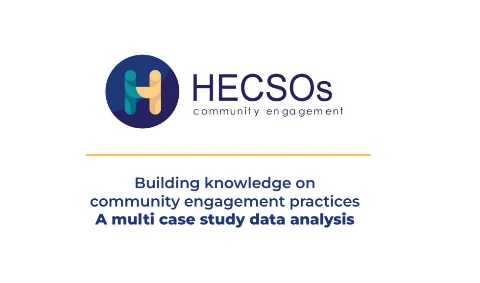
HECSOs aims at improving Universities’ capacities to cooperate with Civil Society Organizations systematically and continuously on community engagement as an innovative and impactful way for socio-economic inclusion of people in need.
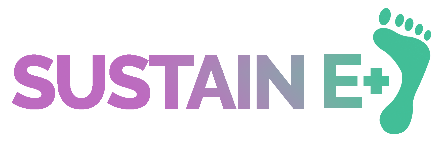
SUSTAIN E+ will train professionals working with the Erasmus + programme to become more environmentally friendly in their self-practice. The project addresses an issue that fundamentally requests transnational cooperation at the EU level, as the idea is based on achieving a sustainable and circular way of implementing EU projects, and is especially linked to education and the Erasmus + programme. Thanks to Sustain E+, professional working with Erasmus + will be able to better evaluate their environmental impact, decrease it, and by extension will raise awareness of all Erasmus participants on their behaviours promoting sustainable actions.
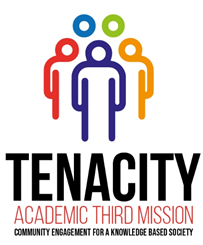
The aim of Tenacity project is to increase the staff competencies in the area of academic communities, namely civic education, public engagement, and social inclusion while taking into account different societal stakeholders like students, professors and citizens (adult citizens, citizens 60+, volunteers, immigrants, minorities, disadvantaged groups, public employees, etc.), through the implementation of academic deliberative arenas for open science and innovation, and the delivery of an e-learning platform for academic deliberative practitioners. The project aims to design and develop a set of models, resources and digital tools to improve and increase the relevance of the Academic Third Mission in the knowledge-based society.
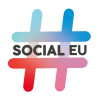
Social EU wants to develop and test an innovative training approach and methodology for EU project managers on how to best use social media in order to reach wider and diverse audience with their project.
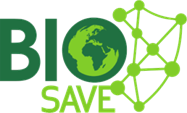
BIO-Save initiative teams up experienced researchers and higher education professionals: With advanced expertise in biotechnology, cell biology, molecular biology, environmental protection, climate studies, educational management, Working in four universities, four SMEs and two NGOs, and Coming from four EU member countries – Bulgaria, Italy, Greece and Slovenia, and one associated country – Turkey, And facing challenges in the form of demographic pressure and needs to address the high level of youth unemployment which is a source of social instability, and to respond to the high demand for professional workers with advance expertise.

The project is based on enabling the youth on the values of intangible cultural heritage elements living in their own society and having indulgence on the differences of the other societies. By introducing the differences among the cultures, the youth will be flexible, open-minded, and willing to be respectful.

STROLL: Walking the City Streets Online
A virtual higher education program that aims to connect students of various European cities, allowing them to work on joint projects to different urban aspects through the creation of an original methodology with digital pedagogical tools.
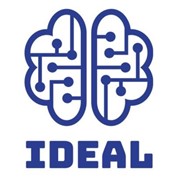
IDEAL: Improving Digital Education for All Learners
In the context of COVID-19, the project will search, evaluate and disseminate international best practices promoting new online/blended learning approaches capable of delivering high academic/technical qualifications, high-level and graduate degrees. The project will focus mainly on higher education, but as there is a similar problem affecting all educational sectors, IDEAL will help inform a broader professional learning context.

AI-TOP: An AI Tool to Predict Engagement and ‘Meltdown’ Events in Students with Autism
Our project aims to tackle early school leaving and to support the inclusive education of students with ASC by the provision of personalised learning pathways and support according to the specific needs of each child.
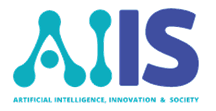
AIIS: Artificial Intelligence, Innovation & Society
AIIS is a 3-year Erasmus + project under Key Action 2 (KA2), Cooperation for innovation and the exchange of good practices, funded by the European Education, Audiovisual and Culture Executive Agency (EACEA). The main objective is to provide a comprehensive programme for medical students, where AI, innovation, and soft skills will play a key role, promoting the integration of the program into european universities’ curricula.

The Rural GCE project intends to help address the imbalance, where it exists, between urban and rural areas and how citizenship is taught and approached in these areas. It will research and consider rurality and rural issues in the chosen countries, issues around global citizenship education, how it is taught, and how all these concepts might intersect. Once these issues have been identified and elaborated on, the project then aims to create a comprehensive learning motivational environment through which resources and training materials can be easily accessed, allowing teachers and other relevant stakeholders to better impart global citizenship practices and values in a more engaging and comprehensive way.The project has the following objectives:
-To develop a course that caters to these difficulties as well as building on the areas of strength
-To develop a learning motivational environment that imparts useful skill and knowledge to users in an accessible and engaging way
-To create a community of practice for teachers and other educators through a virtual network that they can use to share knowledge, practices, and the project results themselves

The Snailville project aims to identify and provide solutions to barriers that prevent growth and success among snail farming businesses across Europe. Through the life of the project, the consortium will undertake research on the issues facing help culture, design and create a training course addressing these issues, and integrate this course into a training game that users can play. In this way, users will be able to gain valuable knowledge in an engaging and straightforward way.
The project has the following objectives:
-To identify barriers that prevent growth and success in heliculture businesses and then real-life solutions to them
-To develop a course that addresses these barriers, provides these solutions, and helps the user implement them
-To develop a training game that imparts this knowledge to users in an accessible and engaging way
-To create a community of practice for heliculturists and other stakeholders through a virtual Academy in which they will be able to share knowledge and broaden the reach of the game and its benefits.
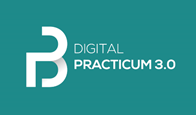
PRAC3 is a European initiative to test the efficacy of an online teaching practicum. Aiming at bringing in the ICT in the practicum, by designing technological products and solutions for the online practicum to be used by mentors and pre-service teachers in the participant countries. The ultimate motivation for this consortium is to design integrated online teaching resources for the on-site school teaching training based on web 3.0, which its defining feature is the possibility to access more personalized information according to the user’s experience (e.g., Elaborationof mentors’ and preservice students’ profiles, and virtual personalized school practices). PRAC3 project’s usability will be based upon two major aspects: a management resource and a professional exchange interface for practice.
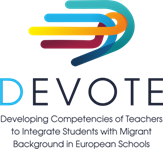
DEVOTE: Developing the Competencies of Teachers to Integrate Students from Migrant
The project aims to strengthen the integration of students with migrant background in schools and improve their success in education by providing training, coaching and guidance to teachers equipping school leaders and educators with the necessary skills and innovative tools to support secondary students in the process, strengthening collaboration between schools, families, and other external stakeholders by providing them:
● An educational content to help teachers to integrate students with migrant backgrounds (EC)
● An open online course for middle and secondary school teachers (OOC)
● A teacher community to share good practices(OEC)
In close collaboration with partners from 5 different countries in a cross sectoral way, we aim to:
● Develop the professional development of teachers in dealing with migrant and refugee learners and diversity in classrooms
● Support schools to facilitate inclusion and success of newly arrived migrant and refugee students, thus contributing to the tackling of early school leaving (ESL)
● Support and enhance the performance of newly-arrived migrant and refugee students in secondary schools.

T-SHIRT: T-SHIRT -Tools on Supporting the fight for Issues of gendeR Traditionality and disparities
T-SHIRT addresses school community members, the teachers at primary education, and subsequently, the students at primary education level (7-12).
On the one side of argumentation, gender bias and inequity have remained extensive issues extended to one of the most important facets in our society: the school education sector. On the other side, the education system is the context for an effecting change both on an individual and social level and it is a key institution that can minimize the differences between genders. Teachers are key- actors responsible for implementing this basic function of education and, they themselves are raised in societies that are stratified by gender; teachers act as carriers of the values and cultural codes of their societies and therefore their empowerment with pedagogies and tools towards gender issues ‘elimination’ is a necessity, through the provision on the one with effective training on how to tackle with the gender equality in their classrooms (via educational approaches to adopt a strategy combating gender inequality, raise awareness and proper sensitivity) and on the other, with additional materials and extracurricular activities targeting the gender equality sense of their students. In this context, emphasis must be placed on sensitizing key actors in the education system to the importance of gender issues and on the fact that it is a long and painful process requiring not only learning of new perspectives but also the unlearning of old ones.
The T-SHIRT Courses for Teachers
1. T-SHIRT Guide and Methodology Package
2. T-SHIRT Digital Resources and Tools
3. National workshops in the 5 countries, Portugal, Greece, Cyprus, UK, Romania; Final Conference in Portugal
4. Dissemination Results

PISH: Problem-Based Learning, Intercultural Communications and STEM in Higher Education
| The “PISH” or “Problem-Based Learning, Intercultural Communications and STEM in Higher Education” project is a European project co-funded by Erasmus+ that aims to address the intercultural communication needs in the peer-to-peer learning environment of STEM students in HEIs. The project, through its objectives, also addresses teachers’ equipment with methodologies, exercises, games, activities, and other tools that will assist and support the target student (mix of foreign and local) groups. The project will leverage the competencies of the partners to equip the teachers with tools on how to guide students to become, open- minded, culturally aware, culturally sensitive, culturally intelligent, and how students can study together without friction. Finally, the project aims at engaging with NGOs, policymakers, and relevant associations that can assist in institutionalizing the project outcomes in HEIs. |

SMART-DevOps
Project Short description: SmartDevOps is an E+ Sector Skills Alliance which will define and develop the skills needed in an emerging and very dynamic sector: Smart Cities. The project addresses the shortage of digital and transferrable skills in municipalities. It will support people working in the smart cities sector (ICT project managers; programmers, technical writers, web designers, system administrators, technicians) in their professional development by training them to apply DevOps, an approach combining the “development” and “operations” phases. This will raise the quality of e-services, helping those Cities become truly IT sustainable while fulfilling their scope to “connect, protect, & enhance the lives of their citizens via digital technology. The project aims to:
- Identify competencies and job role profiles of Smart Cities DevOps professionals.
- Design and deliver a VET curricula combining digital and transferable skills, including a MOOC, open educational resources (OERs), e-learning, face-to-face training and work based experience.
- Pilot the training in Cyprus, Germany, Greece, and Italy and evaluate the experience.
- Relate to European and national qualification frameworks and the European credit system for vocational education and training to facilitate mobility and recognition.
- Use recognized frameworks such as EQAVET and e-CF to ensure quality and transferability.
- Create and support communities of practice where professionals, trainers, employers will continue to work together to improve the Smart Cities sector.
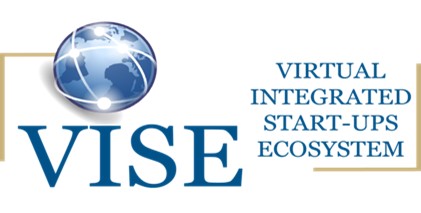
VISE- VIRTUAL INTEGRATED START-UPS ECOSYSTEM
Project Short description: The aim of the project is to strengthen entrepreneurship competences of start-uppers and wannabe entrepreneurs in the field of 3 most needed areas of entrepreneurship (according to entrecomp framework) together with taking up digital technologies to strengthen their business activities.

B-LAND – Promote and Strengthen Business Development Skills in Rural Communities
Project Short description: The main aim of the B-LAND project is to assist VET educators of low-skilled adult people in 4 partner countries (Spain, Greece, Poland and Bulgaria), to become successful entrepreneurs with a focus on small business development. The partnership aims to increase vocational competences of teachers/trainers of entrepreneurship through an innovative pedagogy and approach to teaching with the use of interactive and innovative mobile learning application, applied for agriculture, forestry & rural context.
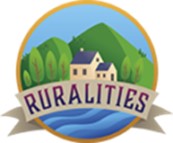
Project Short description: Ruralities aims at empowering citizens of rural and remote areas to become real actors for the improvement of the social and physical living conditions in their localities. One of the most important ways of empowering citizen participation is through education and knowledge transfer. Therefore we will create an educational tool for teaching to people and to local stakeholders, the forms and methods of active participation. Ruralities will approach participation from the everyday’s citizen’s perspective: our products will be based on practice oriented research including theoretical and practical approaches, that will be translated into simple and well understandable learning messages.
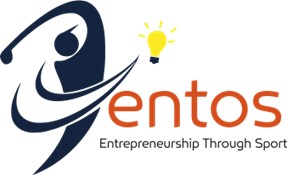
ENTOS– Entrepreneurship Through Sport
Project Short description: ENTOS aims to empower sport teachers’ entrepreneurial attitude, thanks to which they can develop innovative sport activities for their students based on entrepreneurship education at the same time. ENTOS is an innovative student-centred approach that doesn’t require any additional resources to be implemented; rather, its main objective is to add an entrepreneurial attitude to the already existing creative-dimension of sport at school.

Green Routes – Learning about sustainable trends in European cities
Project Short description: The main goal of Green Routes is to create a toolkit to promote sustainable solutions and trends in urban areas. The toolkit will be created through the three intellectual outputs and the training methodology. The Promenade theatre and storytelling Input Training will produce scenarios for both live and virtual AR educational tours on topics connected to sustainability.

DIGITAL Innovation for young Students
Project Short description: DIGITALIS project has the vision to promote the cultivation of digital skills from a young age, focusing on primary education students. By providing a novel pedagogical and methodological framework empowered with new and innovative technology-based approaches and particularly serious gaming, the partnership will address the cultivation of key 21st-century competences including creativity, innovation, teamwork, collaboration, problem-solving, and critical thinking for young students. DIGITALIS project aims via using a combination of in-class assignments and a game-based learning tool to provide young students, aged 8-12 years old, a unique learning experience that will form the basis for outside of the box thinking that can result to future innovative initiatives.

COMPASS: Career cOnsulting and Mentoring skills caPAcity building for youth workerS working with NEETS
Project Short description: COMPASS (Career cOnsulting and Mentoring skills caPAcity building for youth workerS working with NEETS) is a 2-year project funded by the Erasmus+ programme that aims at the recognition and improvement of youth work and its impact of the NEETs labour market inclusion. The project is innovative as it provides competence-based training with focus on career counselling and mentoring skills for youth workers who are specifically working with NEETs and innovative NEETs activation gamified platform.
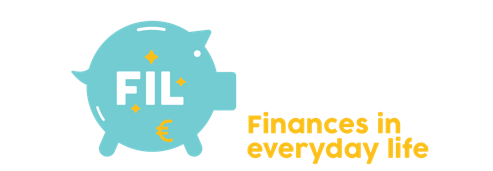
FIL: Finances In everyday life
Project Short description: The project FIL- Finances In everyday life, provides the necessary knowledge and skills for disadvantaged learners in the financial field and digital competence is essential to improve their quality of life and well-being. The FIL project is a response to the problem of a gap in financial knowledge coming from basic skills shortcomings.
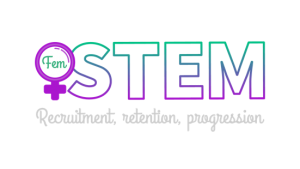
Project Short description: The FemSTEM Coaching project aims to bridge the soft skills gender gap in STEM, by providing women with tools and techniques to develop their confidence and soft skills through a combination of online training and peer-support Coaching Circles™, that are framed around the RRP framework.
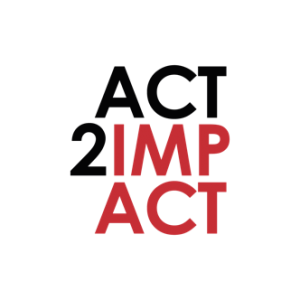
Project Short description: The project ACT2IMPACT aims to tackle the existing gap between the set of soft skills detained by young adults preparing to enter the labor market and the needs currently required by companies. In fact because the traditional education system is changing in a very slow mode, solutions to support young adults to face the new challenges of the changing labor market are highly needed.
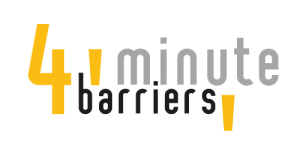
Project Short description: The “Four-minute BarrierS” project aims to include visually impaired young people, organising sport activities that involve sighted and visually impaired people. The project is based on the idea that encouraging a VIP, particularly a child, in getting involved with sport is fundamental for:
- their locomotor development and the related motor skills
- mental development such as space recognition, movement construction;
- psychological wellbeing, increasing the self-confidence and love toward themselves;
- social skills development connected with a high-quality inclusion in the sighted society high level health quality.
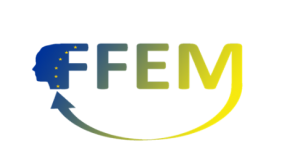
FFEM: Fostering Female Entrepreneurship Mindset
Project Short description: Fostering Female Entrepreneurship Mindset- FFEM project aims at promoting and enhacing entrepreneurship and self-employment by developing a training programme for women at risk of social and economic exclusion. To do so, it is required to provide not only them but also adult professionals (trainers, teachers, social workers, social educators, etc.) with related supporting material which will foster (transfer and) acquisition of knowledge and competences.
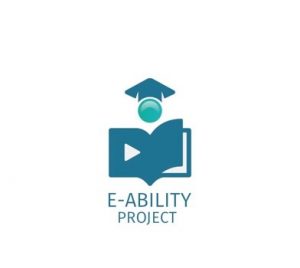
E-ability project: Becoming Aware of Disability
Project Short description: Becoming Aware of Disability: Developing a Cirriculum Based on Cognitive Evolution in Higher Education. The main objective of the project is to prepare a curriculum which includes subjects such as disability and disability rights based on human rights, disability legislation, employment opportunity, employment and social security legislation, tax legislation, legal regulations within the scope of criminal law, principally basic communication, training of sign language, communication techniques with subtitle, empathy, body language, comparative disability legislation and practices and to provide the placement of this curriculum among the curriculums of higher education institutions.

rAn: Raise Awareness of children in the field of natural disasters
Project Short description: Raise Awareness of children in the field of natural disasters -rAn project, aims at assisting children at primary education to cope with these emergency situations, by developing a serious game for raising their awareness about natural disasters and emergency preparedness. The main objective of the game will be for the player to survive a disaster and develop a resilient community in view of periodic geological hazards. The serious game will be based on a dynamic storyboard supported by interactive elements such as quizzes, puzzles and mini-games. Along with the serious game, it will be developed a Facilitator’s Guide which will provide a full overview of all the serious game features.
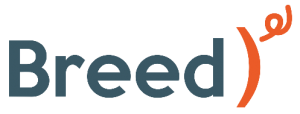
Breed: Empowerment of VET system through sustainable entrepreneurial initiatives in quality pig breeding.
Project Short description: BREED “Promoting empowerment of VET system through sustainable entrepreneurial initiatives in quality pig breeding” is a project started on 1st September 2019, to the scope of providing the VET system with appointed high-quality training to support a sustainable business in pig breeding. Within BREED, partners in the European countries Italy, Poland, Greece, Portugal and Lithuania will foster the resilience of the pig industry from local to European level, by training VET learners to become new breeders, via an integrated action addressing all the three pillars of sustainability (animal and human welfare, profitability and environmental impact) equally in an inter- and transdisciplinary approach.
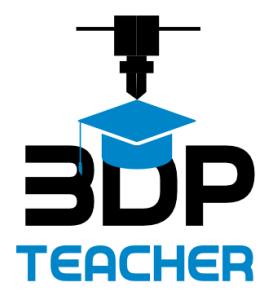
3DP TEACHER PROJECT: implementation of 3D Printing in future education
Project Short description: The Industry 4.0, and particularly technology of 3D printing (3DP) is entering school curricula all over the world, and its potential is becoming widely recognized. Many teachers consider this innovation in the sector welcome and necessary, but they very often lack proper technical and methodological knowledge to embrace this new technology. In order to change this situation, the aim of the project is to improve the digital competences of teachers in relation to implementing of 3D printing in education.
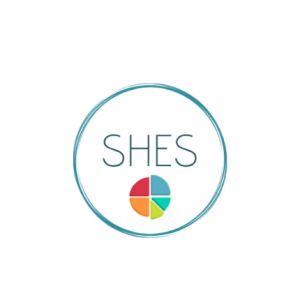
SHES: Sharing Economy for Seniors.
Project Short description: The objective of the project is to offer skills and knowledge to seniors – older adults, with focus on baby boomers aged 50+, how to use sharing economy initiatives to improve their life and at the same time make the most of common used ICT – devices (smart phones, tablets) and accessible and affordable software. SHES will produce a number of results to achieve seniors’ active use of the ICTs and sharing economy. In particular, the project will produce the following results:
- An introductory study about living standard of older population, retirement conditions and challenges and a State Of The Art (SOTA) about existing solutions and initiatives in the field of sharing economy and ICT for seniors.
- A users’ requirements report, whose data will be collected thanks to questionnaires that seniors will answer and thanks to face-to-face focus groups
- A Silver Sharing Economy Guide tested workshops with seniors and the relative report.
- A Scientific Paper that will examine the experience of the project partners in their countries and make recommendations for policy change on the basis of that experience.
- using effectively Human Resources multicultural recognition and evaluation 4.0 techniques (Industry 4.0 ‘smart factories’)
- using innovative and learner-centered pedagogical approaches and enhancing digital integration in learning, teaching, training and youth work at various levels
- promoting access to and learning through Open Educational Resources (OER) in order to acquire high level HR recognition and evaluation skills.
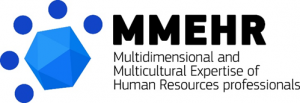
MMEHR: Multidimensional and multicultural expertise of Human Resources Professionals
Project Short description: The ‘Multidimensional and multicultural expertise of Human Resources Professionals’ (MMEHR) project main aim is to encourage employment among young students in the Human Resources area through the acquisition of a new set of high level multicultural and digital skills:
Namely, supporting teachers, trainers, and youth students and promoting digital integration in learning to reach audiences fostering effective employment, quality improvement of access to the labour market and acquisition of a serie of digital and multicultural skills that the forthcoming HR professionals can use throughout their careers.
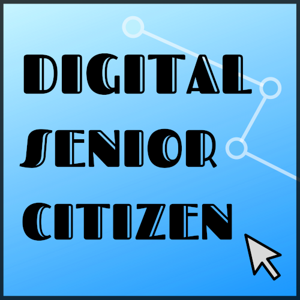
Project Short descrition: DSC is a 2 year project implemented in the framework of Erasmus+ strategic partnerships for Adult Education. The project aims to adapt senior citizens and adult educators in the digital world in order to improve the quality of life of European citizens and to foster innovation and growth for a competitive EU industry. The project focuses on senior citizens in age 65 and above, as these people are left behind in terms of digital skills, and also adult educators working with disadvantaged people in digital competencies. The objectives aim to make adult educators more competitive by preparing Open Educational Resource (OER) and training methodology for senior learners in order to support the increase of digital skills for both groups

EDGE: Enhancing Disabled-people Greatness and their Employability
Project Short description: “EDGE” is a 3 year project implemented in the framework of Erasmus+ strategic partnerships for Vocational Education and Training. EDGE is aimed at ideating and testing innovative approaches to foster the employability of young people with intellectual and relational disability, creating the ground for their inclusion in the labour market and in the society. EDGE is aimed at improving the well-being and quality of life of young people with mental and relational disabilities, pursuing the following 3 main objectives: i) Creating innovative and ad hoc training methodologies for a successful job placement ii) Prompting companies to be more proactive about hiring people with mental challenges iii) Fostering entrepreneurial mindset, competences and possibilities.
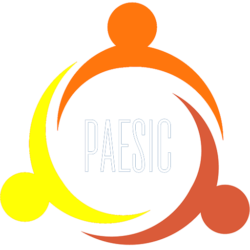
PAESIC: Pedagogical Approaches for Enhanced Social Inclusion in the Classroom
Project Short description: “PAESIC” is a 2 year project implemented in the framework of Erasmus+ strategic partnerships for Adult Education. The project aims to to provide trainings and promote social cohesion and the competencies of primary school teachers in enhancing social inclusion, finding solutions in existing experiences and exploring methodologies and approaches. This action will focus on the production of online training courses including methodologies and recommendations and also mentoring schemes for teachers. The objective of the above activities will be to help teachers to become better equipped to tackle the challenges they face in the classroom.
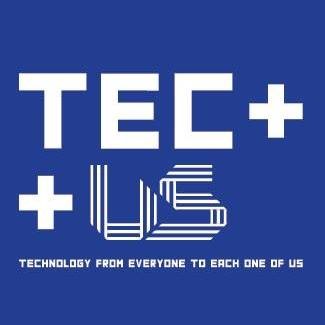
TEC++US: Technology from everyone to everyone and each one of us
Project Short description: TEC++US is a 25 months project implemented in the framework of Erasmus+ strategic partnerships for School Education. The primary aim of the project is to create a transnational tool, which facilitates the learning of useful basic words/ expressions/ questions to kids during the first week of adaptation to a new country, or in acquiring language skills in basic school. The project’s big challenge is to create a communication tool which any children, with learning disabilities or not, will be able to engage in communication anywhere, with the use of pictograms instead of written words. It is intended that this technological product created mainly for kids, could also be usable by the elderly, adults, people and children with special needs.

EuHiMo: European History Moving
Project Short description: EuHiMo is a 23 months project implemented in the framework of Erasmus+ strategic partnerships for School Education. The project is an Exchange of Good Practices to support the comparison, research and application of new teaching methods with a view to building the intercultural European Community of learning and education, so it requires development in a transnational context for geographical, socio-cultural characteristics and types of subjects involved. The project places Cinema at the center of a New Didactic Method for the study of History in the field of education in a context of formal and non-formal learning.
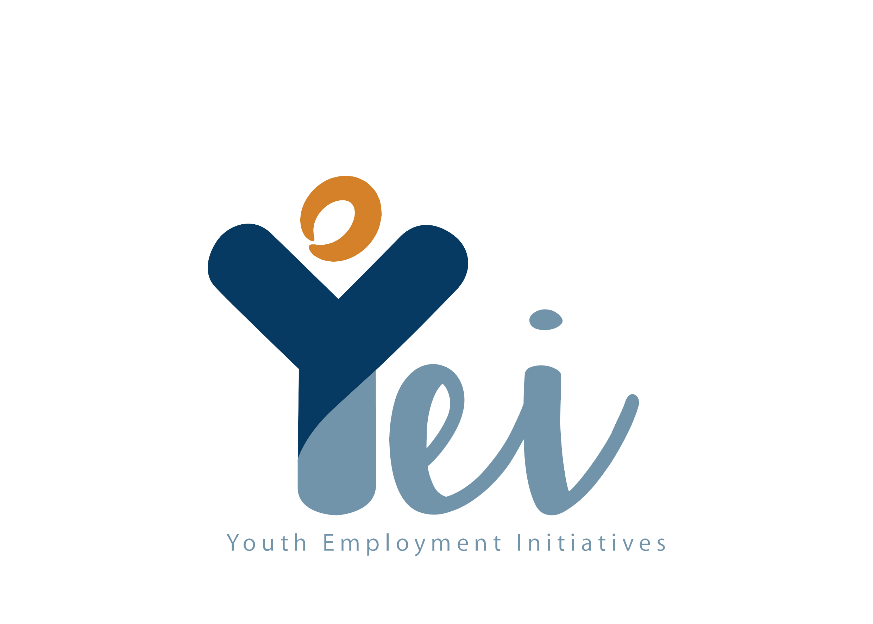
YEI: Youth Employment Initiatives
Project Short description: YEI is a 16-month project implemented in the framework of Erasmus+ strategic partnerships for Youth. It focuses on sharing experiences and good practices between European organizations working in the field of youth that have developed their own initiatives, projects, tools or methods to improve the employability of young people. The target audience of this project are workers of organizations that develop initiatives or implement their own projects to improve the employability of young people, or to improve their personal and professional skills oriented to the labour insertion.
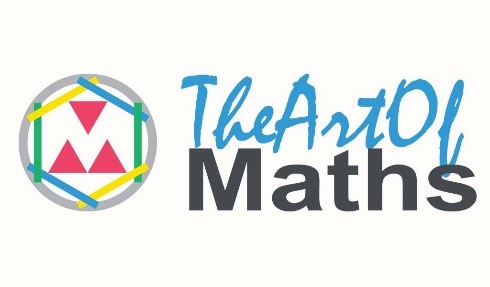
Project Short description: TheAMa is a 2-year project implemented in the framework of Erasmus+ strategic partnerships for School Education. The project is about improving the perception, understanding and teaching of mathematics through arts. The target groups of the project are elementary students and also school teachers. The consortium will produce a training course in addition to pilot sessions and workshops based on the idea of the applicability of mathematics in various forms of Art.
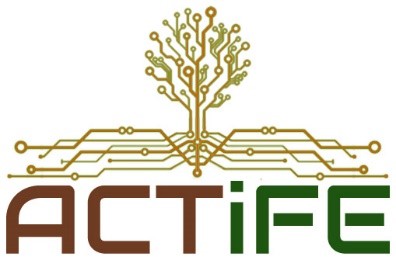
Project Short description: ACTiFE is a 2-year project implemented in the framework of Erasmus+ strategic partnerships for Adult Education. ACTiFE aims to develop or re-invent strategies and intuitive tools to enhance the motivation and engagement with STEM and Entrepreneurship related fields. It is supposed to help adult learners that attend Lifelong Learning courses, Adult Second Chance Schools or Vocational training (VET) courses and even more those that are unemployed and/or at risk of exclusion.
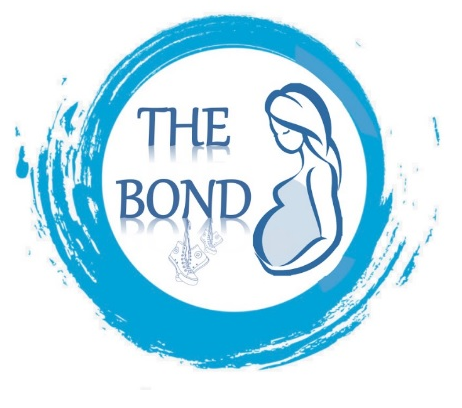
The Bond
Project Short description:The Bond” is a 28-month project implemented in the framework of Erasmus+ strategic partnerships for Youth. The main goal of the project is to improve the situation of teenage girls who get pregnant and give birth. The project throughout its topic is innovate and additionally enables to create specific tools. Taking needs of this group into account will result in improving the minor mothers’ situation and the quality of work of specialists. The important element of this activity is to promote positive pedagogics concentrated on strengths of these girls instead of their lacks
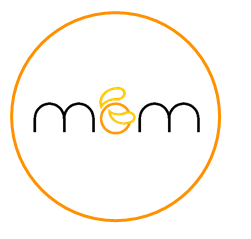
MOM: Maternity Opportunities and Mainstreaming
Project Short description:MOM is a 36-month project implemented in the framework of Erasmus+ strategic partnerships for Adult Education. This project’s aim is to frame maternity as a learning experience that provides mothers with soft skills that are extremely useful in nowadays workforce. The consortium gathers some truly innovative experiences whose main common is to provide skills and resources for women empowerment, adult education and active citizenship. MOM’s target groups are mothers that lost their jobs due to maternity; women who face difficulties in finding a job because they are mothers; women returners; single mothers who need to improve their job presence, and; pregnant women who want to reinforce their competences for a future job.
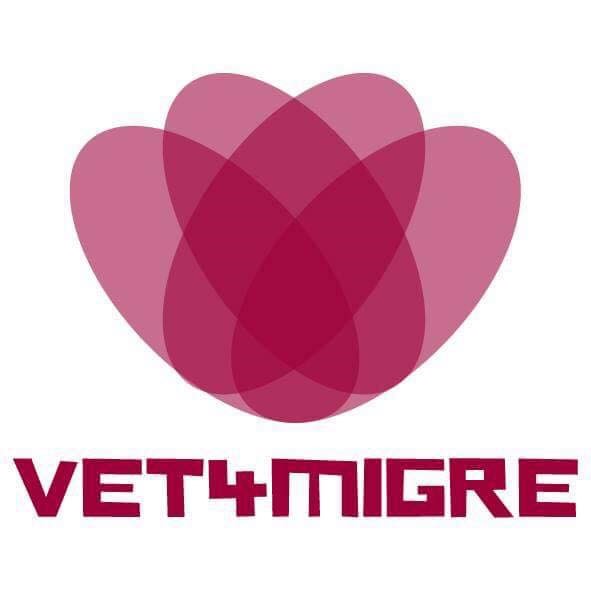
VET4MIGRE: VET opportunities for migrants and refugees
Project Short description: VET4MIGRE is a 28-month project implemented in the framework of Erasmus+ strategic partnerships for Vocational Education and Training. This project aims to develop new, creative and far-sighted strategies and practical ways, so that the refugee and migrant population adapts, integrates and becomes a positive member in the host country. One of the safest ways seems to be to integrate them into the labour market by offering training and mentoring opportunities necessary to become self-employed. The objective of this project is to support the creation, the improvement and the wider dissemination of support schemes for migrant entrepreneurs. It focuses on facilitating mutual learning, the exchange of experiences and good practice, the exploitation of synergies and the emergence of strategic collaborations.
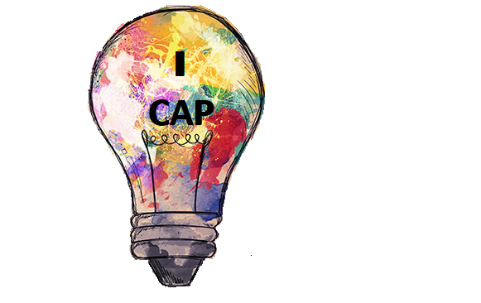
iCAP: Early Innocation Capacity
Project Short description: “iCAP” is a 2-year project implemented in the framework of Erasmus+ strategic partnerships for School Education. The project is missioned to carry out experimentation with open schooling approaches, fostering innovation mindsets, and addressing and involving students aged 12 and 15. The Commission recommends that the creation of innovation, capacity and entrepreneurial interest should not be linked to a specific subject, but carried out in open schooling practices and be added to the curriculum as a new dimension.
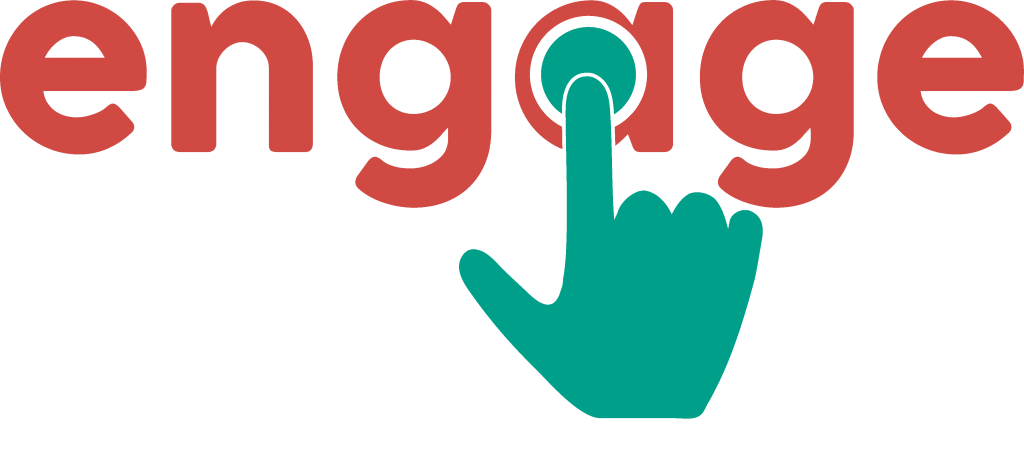
ENGAGE: ENhancinG Adults key competences to promote and encouraGe effective
Project Short description: ENGAGE is a 2-year project implemented in the framework of Erasmus+ strategic partnerships for Adult Education. The main aim of this project is to develop end enhance the soft skills of young people regarding problem solving, critical thinking, creativity and teamwork and facilitate the match between young adults and employers through delivery of high quality learning opportunities tailored to the needs of low skilled young adults. So, the target group will be low-skilled young adults, including those Not in Education Employment or Training (NEETs) and the employers of those adults.

Breed2Lead: Disruptive change agents: the new breed of leaders in Europe
Project Short description: Breed2Lead is a 2-year project implemented in the framework of Erasmus+ strategic partnerships for School Education. This project aims to draw the profile of the new breed of talents required by an entrepreneur-driven innovation ecosystem, known as disruptive change agents. The project develops a methodology to support the identification, assessment and nourishment of the next generation of leaders who, by the definition of the disruptive change agent, will promote knowledge and innovation across their entities.

E-tutoring: tools and web resources for study and career management
Project Short description:E-tutoring is a 2-year project implemented in the framework of Erasmus+ strategic partnerships for Higher Education. The main aim is to reduce academic drop-out rates with the development of a set of tools and a new tutoring system that combine career guidance, peer learning, social networks and new digital technologies. The project’s target group consists of academic students but also it will have a direct impact on HEI institutions as it will improve the quality of academic career guidance. The expected outputs of the project are the creation of a European digital system, adapted for different contexts, based on a mobile application, that provides tools and device for e-tutoring support to students during their academic career. In addition to the App, the project will develop an e-learning training system for e-tutors in order to guide and support students during their academic life.
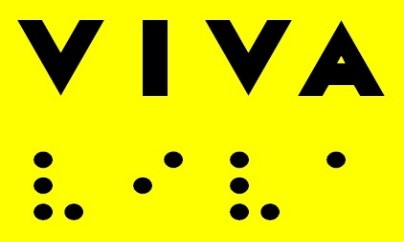
VIVA: Visually Impaired youth with Vested Autonomy –Social inclusion via social entrepreneurship
Project Short description: VIVA is a 2-year project implemented in the framework of Erasmus+ strategic partnerships for Youth. VIVA is aimed at developing an innovative entrepreneurship training programme for the youth sector, addressing the needs of young people with visual impairment, for social inclusion and employment opportunities. The primary target group of the project is young people with visual impairment aged 18 to 30. The tasks for achieving the objectives the creation of an innovative social entrepreneurship training programme (SETP) for youth with v.i. in order to develop their leadership, social entrepreneurship and intercultural skills.
